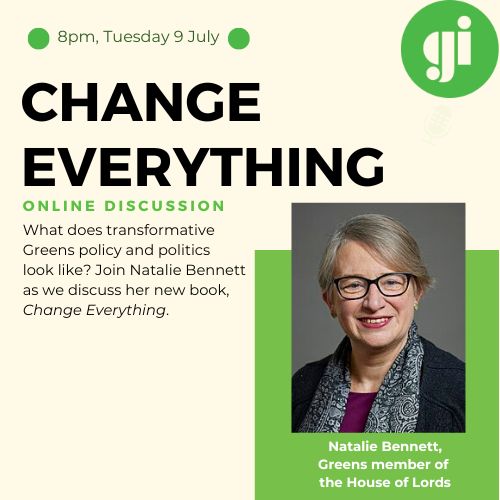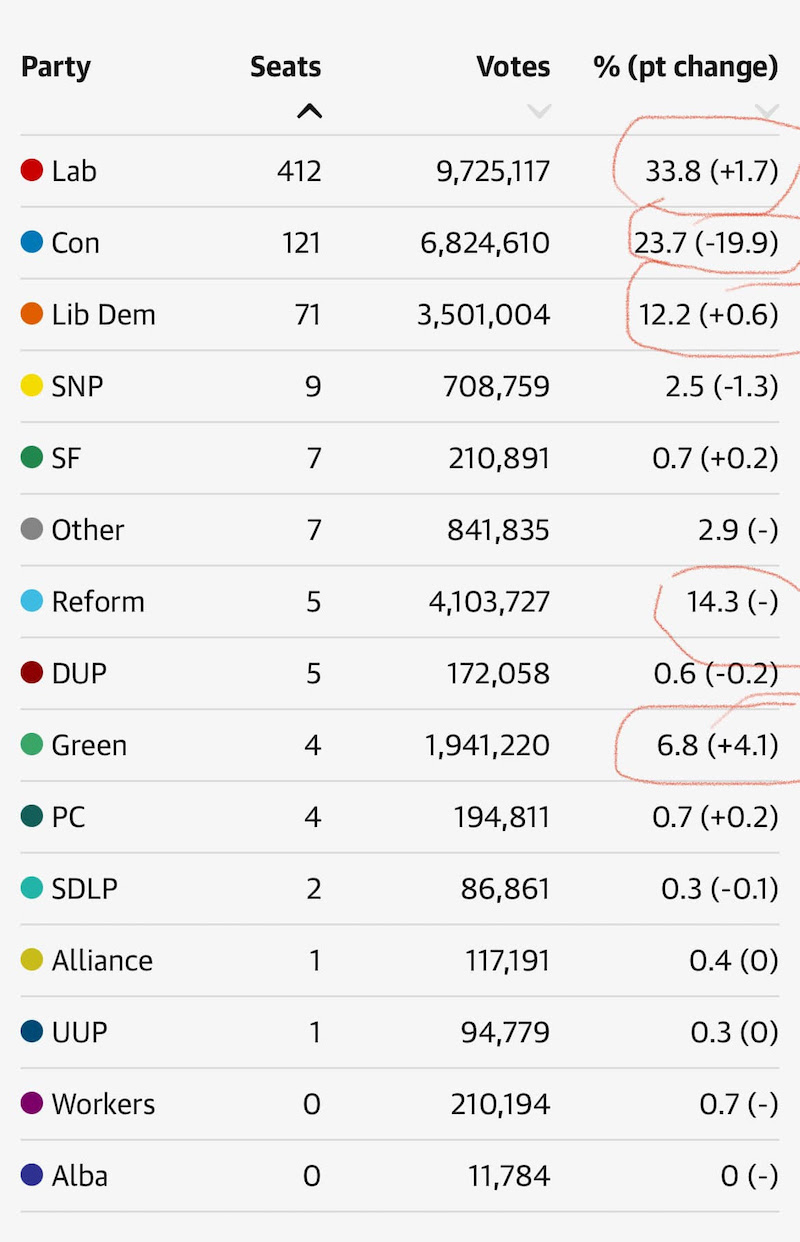Elections =/= Democracy

On Tuesday evening, when Christine Milne and I chat with former leader of the Green Party of England and Wales, Natalie Bennett, about her new book, Change Everything, one of the things I’m looking forward to discussing is the weird and complex and misleading relationship between electoral systems and democracy.
The British electoral system was designed to limit the voice of the people, and good golly jeepers did it deliver a spectacularly perverse outcome this week!
Labour secured a massive majority, an enormous increase in seats, with barely a third of the vote and almost no increase in its vote share. Labour won because the Conservative vote collapsed, and split.
The Lib Dems went from a marginal 8 seats to 71 with, again, almost no change in their vote share, winning seats mostly because the Conservative vote collapsed and split.
The only parties to genuinely increase their vote share were Reform (unfortunately, but, on the upside, only by cannibalising Tory votes) and the Greens. And the Greens did well because of a long term strategy of winning councils, building grassroots power, and targeting four seats. We’ll definitely be talking about that on Tuesday!

There’s once again been talk of replacing Britain’s appalling First Past the Post electoral system with some form of preferential or proportional representation. And sure, that would be an important step that I know Christine wants to discuss with Natalie.
But let’s not imagine that a better electoral system will fix our politics.
The story of most recent elections – in Australia, the UK, France (watching the second round with trepidation tomorrow), Europe – is that all our electoral systems are splintering and breaking as people seek actual democratic agency. First Past the Post is the worst, and broke badly this week. But even Australia’s excellent electoral system is not matching the democratic impulse. Indeed, not even Tasmania’s and ACT’s brilliant Hare Clark system is keeping up, when still attached to a binary, adversarial Westminster model that more and more people recognise is not very democratic.
As Natalie writes in her book, and as is the core of my book and my politics, true democracy involves participation and deliberation. Boiling democracy down to voting, picking a side and fighting for it, can never be truly democratic – it will never reflect the considered view of the people, and will always be dominated and perverted by a minority with physical or financial power.
How can we “change everything” when we’re so focussed on electoralism, which is actually designed to limit the capacity for change, and maintain the status quo?
We’ll be discussing all this and more on Tuesday evening, with Natalie Bennett and Christine Milne. Please do join us!
Tim.
comments
Add comment